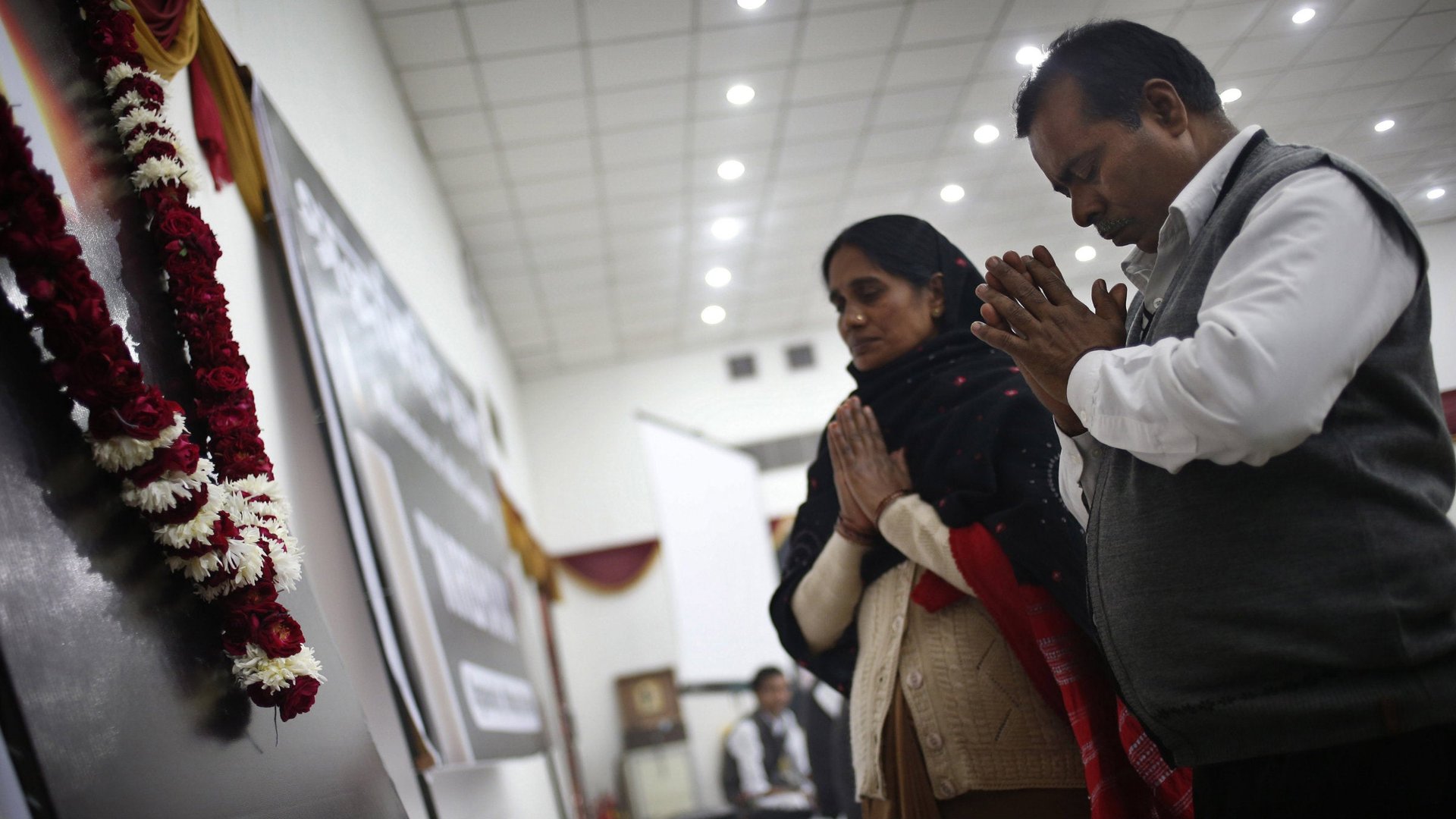One year ago today, a young woman changed the course of India’s history
It’s been one year since the fatal Delhi gang rape aboard a moving bus—one year since a 23-year-old woman captured the world’s consciousness. While violence against women and girls continues to remain the largest global human rights pandemic, her courage brought the issue out of the shadows into stadium lighting, initially a fight waged from a hospital bed, then days later in death. Nothing has been the same ever since—especially in India.


It’s been one year since the fatal Delhi gang rape aboard a moving bus—one year since a 23-year-old woman captured the world’s consciousness. While violence against women and girls continues to remain the largest global human rights pandemic, her courage brought the issue out of the shadows into stadium lighting, initially a fight waged from a hospital bed, then days later in death. Nothing has been the same ever since—especially in India.
Her incandescence surrounds us. Let me count the ways. A leading editor in chief of a progressive media house and a retired Supreme Court judge are in the spotlight amid allegations they made unwelcome advances to young women working for them. What’s different about these cases is that instead of the young women being silenced and shamed, as might have happened before, the focus is now on the inappropriate behavior of the suspects. In Delhi alone, the reporting of sexual assaults has soared, from 727 in all of 2012 to 2,844 in the first 10 months of 2013, according to the National Criminal Records Bureau.
While the increased reporting runs up against the broken law enforcement and judicial system, the Delhi gang rape forced the issue of women’s public security into every single party manifesto. The recent defeat of the Congress party in Delhi is in no small part due to the perception that the government failed to deliver on its promises of better transportation and safety for women.
And the victim’s light found its way into yesterday’s protests against the Supreme Court decision to criminalize gay sex. An activist from the All India Students Union took the stage and firmly connected the movement ignited on Dec. 16, 2012 to the ongoing struggle for all human rights. “When we fought for women’s rights after the Delhi gang rape we fought for the rights of All women. Dalit, tribal, sex workers, maids, lesbians, bisexual, transgender, Muslim, Kashmiri—all women.” I stood there with tears in my eyes and channeled love and gratitude for the connection and bridges built by a young woman just trying to get home on a cold night one year ago in New Delhi.
There’s no going back.